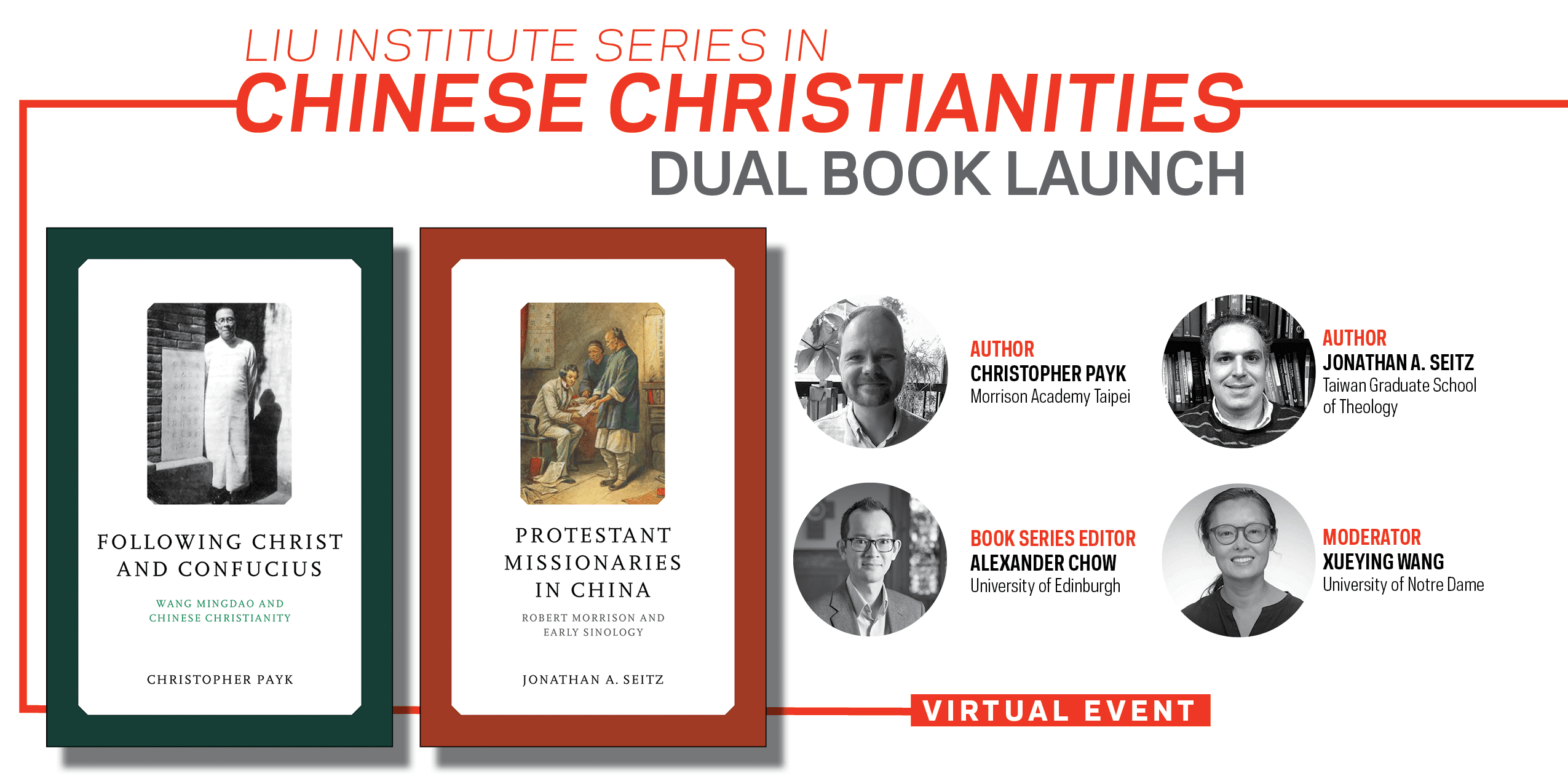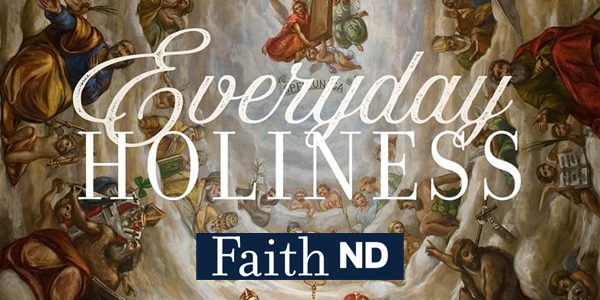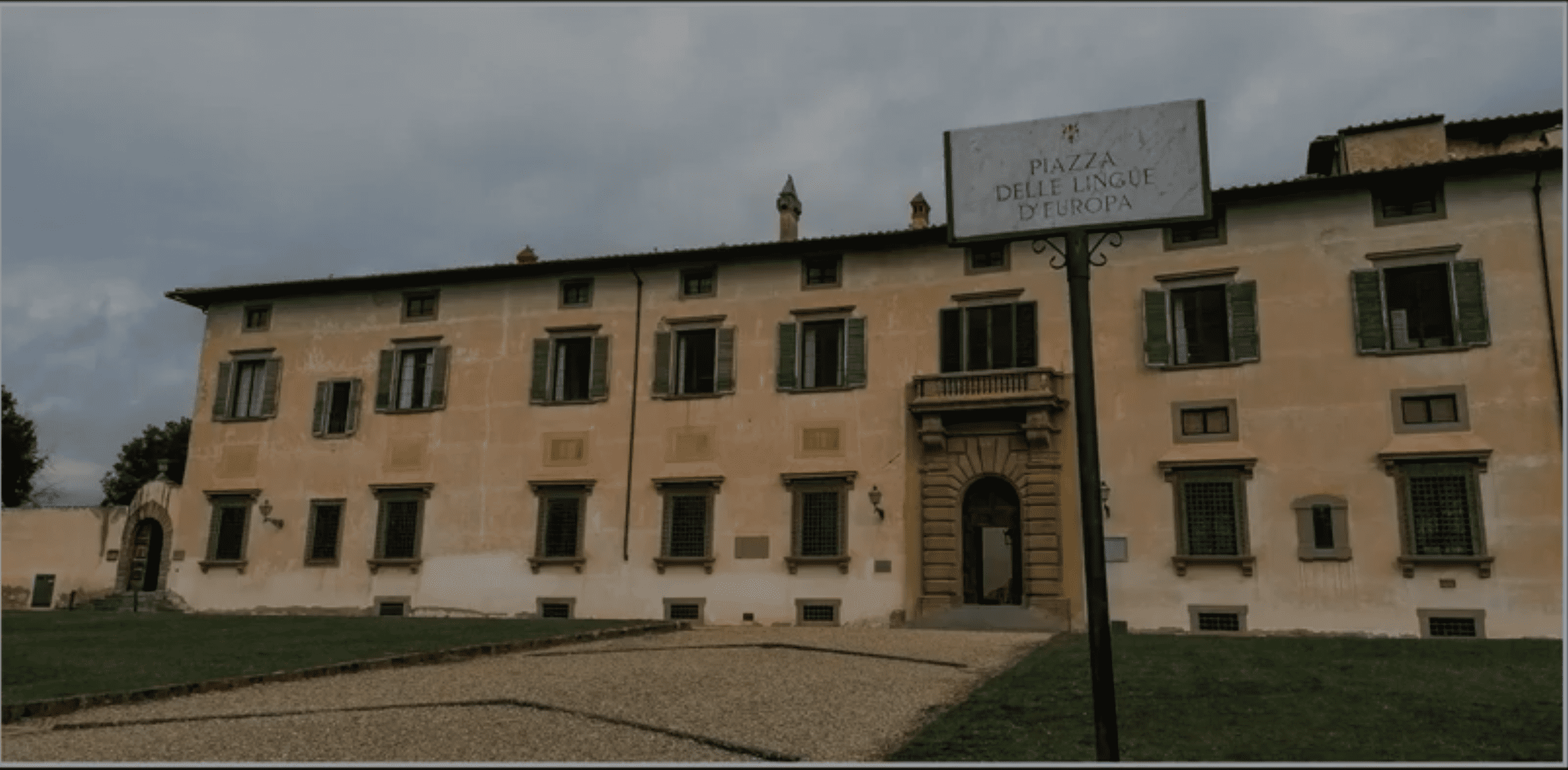Shakespeare: On the Shakespeare Trail
Subscribe to the ThinkND podcast on Apple, Spotify, or Google.
Featured Speakers:
- Rev. James M. Lies, C.S.C., Senior Director, Academic Initiatives and Partnerships, London Global Gateway
- Boika Sokolova, Adjunct Associate Professor, London Global Gateway
- Peter Holland, Professor; McMeel Family Chair in Shakespeare Studies; Associate Dean for the Arts, University of Notre Dame
Honored Guest:
- Sir Stanley Wells CBE, FRSL, Former Life Trustee (1975-2017); Former Chairman of the Shakespeare Birthplace Trust (1991-2011); Emeritus Professor of Shakespeare Studies, University of Birmingham; Honorary Emeritus Governor, Royal Shakespeare Theatre
This event marked the 10th anniversary of the Notre Dame London Shakespeare Lecture in Honor of Stanley Wells. Fr. Jim Lies, C.S.C, Senior Director for Academic Initiatives and Partnerships at the Notre Dame London Global Gateway, gave introductory remarks to Professor Boika Sokolova, Adjunct Associate Professor at the Notre Dame London Global Gateway, without whom the lecture series would not have been possible. Sokolova highlighted that the lecture “was designed to provide a space where both Shakespeare scholars and theatre practitioners can talk about their work”. Sokolova then introduced Professor Peter Holland, McMeel Family Chair in Shakespeare Studies; Associate Dean for the Arts, who presented his lecture, On the Shakespeare Trail, exploring an often overlooked area of Shakespeare marketing: the film and theatre trailer.
Holland begins his lecture by discussing the history of film trailers from the viewpoint that they used to be only available to watch within movie theatres themselves. In November 1998 this drove many thousands of fans to purchase tickets at their local movie theaters with no interest in watching the movie that was playing, but only in order to watch one trailer, the first teaser-trailer for Star Wars Episode 1: The Phantom Menace.
Trailers are extensively analyzed, researched and tested on audiences before distribution, yet Shakespeare trailers are a barely noticed part of Shakespeare studies. Here, Holland is primarily concerned with “words rather than images, words on screen, words in voice-over, words spoken by characters and words that the trailer speaks,” particularly investigating the ways in how Shakespeare is marketed to a wider demographic. Older Shakespeare trailers featured phrases such as “proud to present”, comparatively however, this phrase would not be used in the marketing of say, a Batman movie. The pride, Holland argues, is the company’s involvement in a Shakespeare film, an ultimate marker of high culture, antithetical to the mainstream popularity of cinema. There are even examples where the word Shakespeare is erased from film trailers, as is the case in Gil Junger’s 10 Things I Hate About You, an effort, one imagines, to broaden the potential appeal of the genre.
Holland’s main inquiry comes in the distinction between two forms of trailer, narrative and list for genre, through which he uses two trailers for Julie Taymor’s Titus (1999) to demonstrate this. The first features a brilliant selection of phrases constructing a perfectly formed and acceptable synopsis of the plot of a play that 99.9% of the potential audience will barely have heard of. Here, the primary concern of the trailer is to use narrative to define genre and form. “If you had to create a two-minute summary of Titus”, says Holland, “I don’t know that one could do much better than this.” In the second trailer, not a single moment of speech or voiceover and not a care in the world for narrative. This overt style of presentation shows what a different audience might want: not story, not character, just sex, rock, camp, spectacle, all of which Titus magnificently and sensationally provides. What better way to describe both Taymor’s Titus and perhaps Shakespeare’s Titus Andronicus than as a representation of ‘Decadence Lust Madness Passion Betrayal’?
Much trickier to market is the trailer for Joss Whedon’s 2013 Much Ado About Nothing. The film is defined on screen as being ‘From the director of Avengers Assemble’, there is clearly anxiety about what the collocation of Whedon and Shakespeare will produce, but this is conveniently resolved later in the conjunction of the two names, ‘Joss Whedon And Shakespeare Are A Match Made In Heaven’.
Finally, Holland asks, what if there is no film? What would a trailer look like if there were nothing to see or hear that would be part of the finished product? In the run-up to a ‘live from the RSC’ broadcast of Richard II there is no film material to use. The creation of trailers for theatre productions is a new format still in its infancy, one that now demands our attention. Shakespeare trailers both film and theatre productions are a new site for study, one which Holland invites us to explore.
- On 17th November 1998 and for a while after, across the US and far beyond, people bought tickets at their local movie theaters with no interest in watching the movie that was playing but only in order to watch the trailer the first teaser-trailer for Star Wars Episode 1: The Phantom Menace. (Peter Holland, 14:14)
- There is a little scholarly work out there on the topic, of course, especially in Emma French’s 2006 monograph, Selling Shakespeare to Hollywood, with its focus on ‘what the manner in which Hollywood marketed Shakespeare, and Shakespeare was marketed to Hollywood, reveals about high/low hybridity in global consumer culture’. (Peter Holland, 18:11)
- “Castle Rock Entertainment is proud to”. It’s an unusual form for mentioning the stars’ names and I hear it as a kind of displacement from the much more common use of this kind of register as a signal of a high-culture film, not only, though also, carrying the implications of a piece of art-house cinema packaged for general distribution. Production companies do not manifest their pride in, say, a Batman movie or in horror franchises. (Peter Holland, 25:58)
- …if the aim – and what other aim is there? – is to encourage a demographic to explore something that otherwise they would steadfastly resist and deny and interest in, then the line ‘If you think you know Shakespeare…Think again’ is remarkably effective. (Peter Holland, 43:29)
- ‘If you think you know Shakespeare…Think again.’ (Peter Holland quoting a film trailer 43:39)
- But what, finally, if there is no film? What would a trailer look like if there were nothing to see or hear that would be part of the finished product? Here’s an example: [See Trailer – Richard II] In the run-up to a ‘live from’ broadcast there is no film material to use. (Peter Holland, 55:33)
- ‘If you had to create a two-minute summary of Titus, I don’t know that one could do much better than this.’ (Peter Holland 40:44)
- ‘What better way to describe both Taymor’s Titus and perhaps Shakespeare’s Titus Andronicus than as a representation of ‘Decadence Lust Madness Passion Betrayal’?’ (Peter Holland 43:12)
Related Content
Liu Institute Series in Chinese Christianities Dual Book Launch
Christianity is the fastest-growing religion in mainland China and a large, linguistically and culturally diverse Chinese diaspora, which encompasses more than a fifth of the...
View EventEveryday Holiness: Fr. Dan Groody, C.S.C.
“God is not just someone to make intellectual assent to in our minds but someone to encounter into the depths of our heart. And if we are not able to make that migration, then...
View EventOVI Seminar Series 2024, IV
Investigating the phenomenon of the so-called ‘rhythmic figures’ in Dante through a new database and query platform for the Commedia, which aims at setting up a new, wide...
View Event


